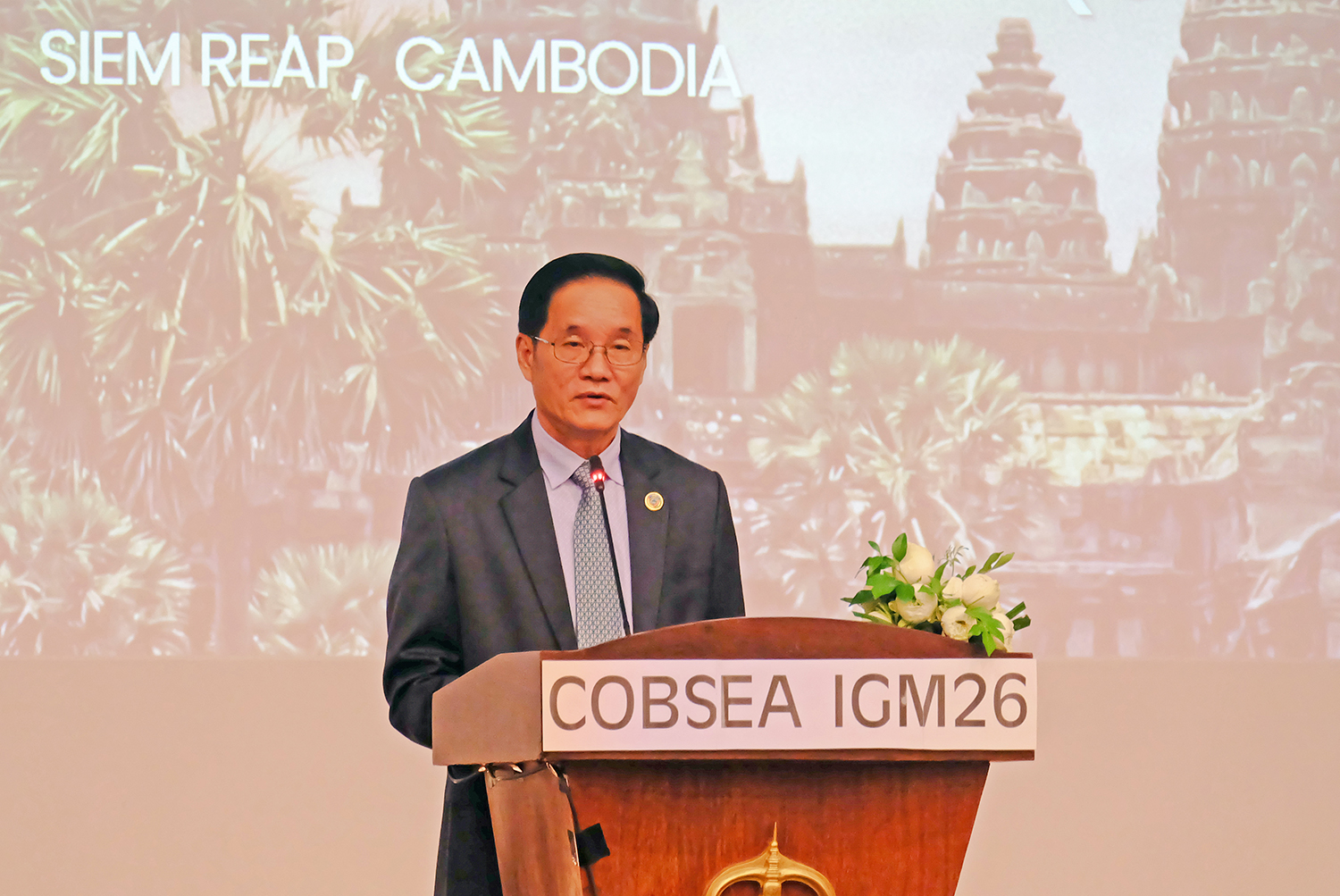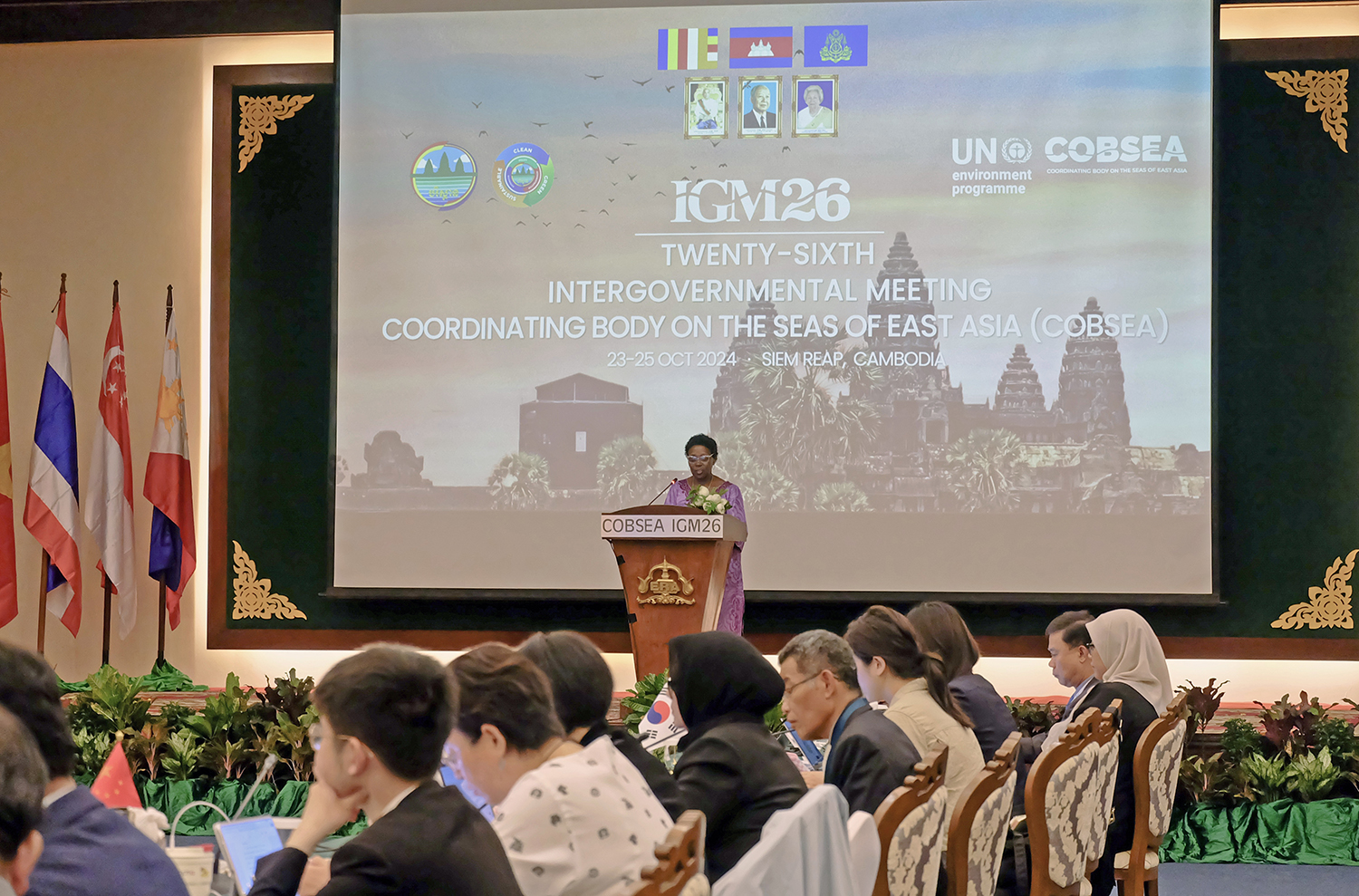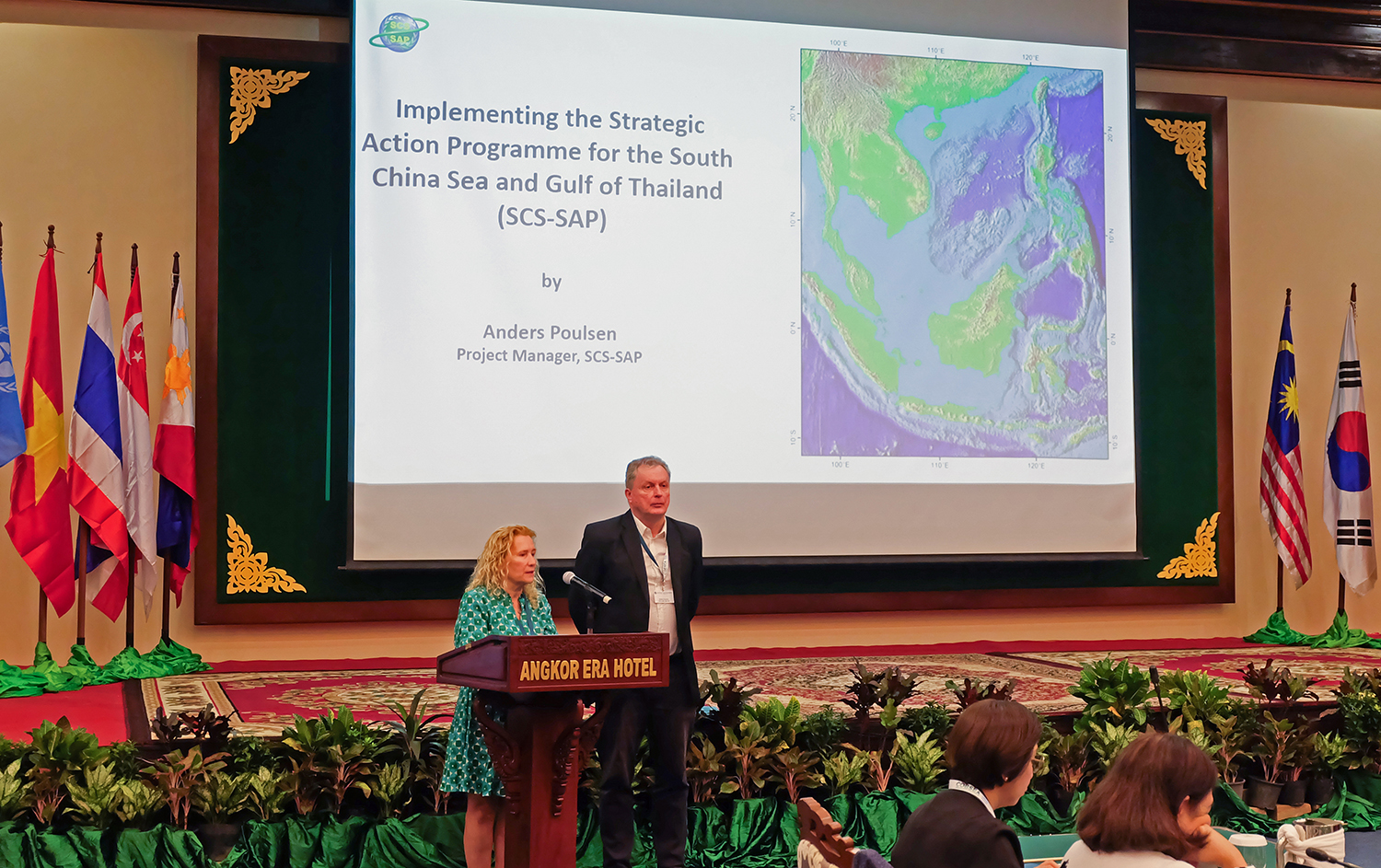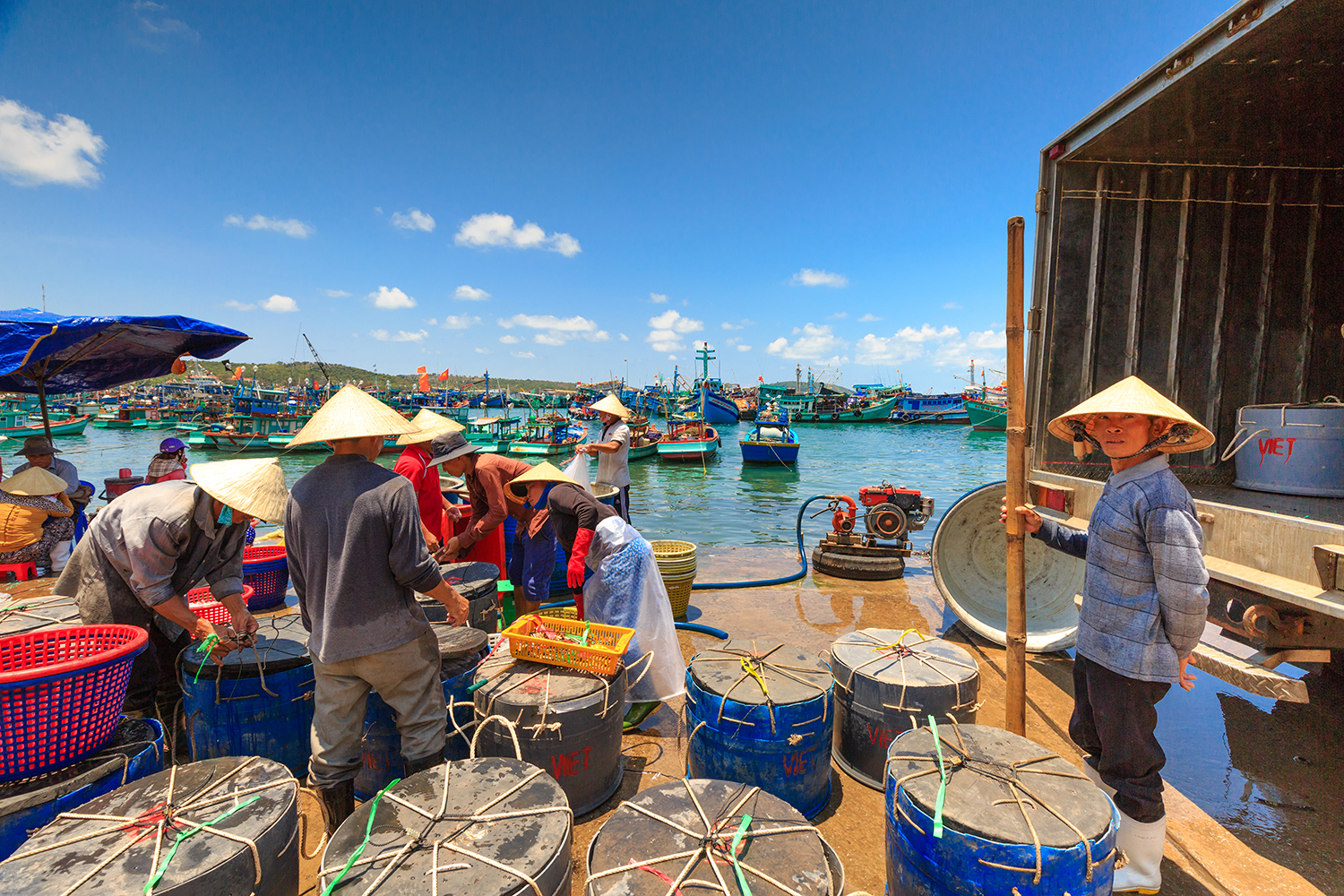The 26th Intergovernmental Meeting of the Coordinating Body on the Seas of East Asia (COBSEA) convened in Siem Reap, Cambodia on 23-25 October 2024. The meeting brought together delegates from all nine COBSEA participating countries: Cambodia, China, Indonesia, Republic of Korea, Malaysia, Philippines, Singapore, Thailand, and Vietnam.
 The meeting opened with remarks from Yun Linne, Deputy Governor of Siem Reap Province, who highlighted local environmental challenges, particularly regarding the Tonle Sap ecosystem and floating villages.
The meeting opened with remarks from Yun Linne, Deputy Governor of Siem Reap Province, who highlighted local environmental challenges, particularly regarding the Tonle Sap ecosystem and floating villages.

United Nations (UN) Assistant Secretary-General and UN Environment Programme (UNEP) Deputy Executive Director Elizabeth Mrema emphasized the region's critical marine biodiversity, noting that East Asia contains 27% of the world's coral reefs and over 1% of globally mapped mangroves. She presented concerning statistics, including a 4.7% annual seagrass decline across nine countries and projected sea level rises of 50-70 centimeters in coastal areas.
A significant portion of the meeting focused on the Regional Action Plan on Marine Litter (RAP MALI). The Working Group on Marine Litter held its sixth meeting just before the main conference, developing recommendations and a comprehensive workplan for 2025-2026. A key development was the establishment of an East Asian Seas Regional Node, part of the Global Partnership on Plastic Pollution and Marine Litter, with Indonesia offering to host this initiative. This Regional Node will serve as a crucial hub for implementing global marine conservation strategies in East Asia, aligning regional efforts with international frameworks such as the UN Sustainable Development Goals and the upcoming COP29 climate objectives.
The Intergovernmental Meeting also provided a valuable platform for the GEF/UNEP/UNOPS South China Sea Strategic Action Programme (SCS SAP) Project to engage with COBSEA member countries and international partners. As a partner of the SCSSAP Project, COBSEA plays a crucial role in supporting its implementation and ensuring its long-term sustainability. UNEP GEF International Waters Task Manager Isabelle Vanderbeck and SCSSAP Project Manager Anders Poulsen presented the project's key achievements and ongoing activities, highlighting its alignment with COBSEA's regional priorities. The continued collaboration between UNEP, COBSEA and its participating countries, and the SCSSAP Project is essential for driving progress towards a healthy and resilient marine environment in the South China Sea and Gulf of Thailand.

"I've witnessed remarkable cooperation between countries at a level rarely seen in regional seas initiatives. There's clear consensus about the crisis facing our oceans and coastal zones, but also strong commitment to action. The countries have agreed on concrete targets for reducing seagrass decline, restoring mangroves, and investing in nature-based solutions,"
said Bruno Pozzi, Director of the Ecosystems Division at UNEP. "With Indonesia's leadership in establishing a Regional Action Centre for clean seas and marine pollution control, we're seeing how regional cooperation can bring life back to our oceans and coasts. This marks an exciting evolution in COBSEA's development as a regional seas program."
The meeting established a dedicated Task Force to enhance COBSEA's effectiveness in protecting marine environments. This initiative will help coordinate regional responses to environmental challenges and strengthen cooperation between member nations. The Task Force will focus on implementing recommendations from a comprehensive strategic review, ensuring COBSEA can better serve its mission of protecting the East Asian Seas.
Recognizing the critical impact of nutrient pollution on marine ecosystems, the meeting adopted a Collaborative Action Framework on Nutrients Management. This framework aims to address nutrient pollution in the region's watersheds and seas, with implementation approaches tailored to each country's unique environmental challenges and capabilities.

"The achievements of this meeting signal strong regional cooperation to protect the East Asian Seas. The East Asian Seas connect nine countries, making collaborative management essential. No single nation can effectively protect these waters alone - actions taken at the national level impact all neighboring countries. That's why the decisions made here, including the establishment of regional centers for marine litter and nutrients management, represent such significant progress. COBSEA exemplifies how regional cooperation can effectively address our shared marine environmental challenges,"
said Elizabeth Mrema.
The meeting set important precedents for both regional and global environmental protection, including preparations for November's international plastic pollution negotiations in Busan. The initiatives align closely with the Paris Agreement's goals for climate adaptation and the UN's Sustainable Development Goals, particularly SDG 14 on Life Below Water. A follow-up ministerial-level meeting is scheduled for early 2025 to review progress on the implementation of these new frameworks.
With 2.3 billion people living in the region's coastal areas, COBSEA's new frameworks and initiatives for marine protected areas, pollution reduction, and ecosystem preservation demonstrate how international collaboration can effectively address complex environmental challenges. The success of this meeting not only promises far-reaching impacts for environmental preservation and human wellbeing in East Asia but also sets a compelling example for regional cooperation worldwide.






